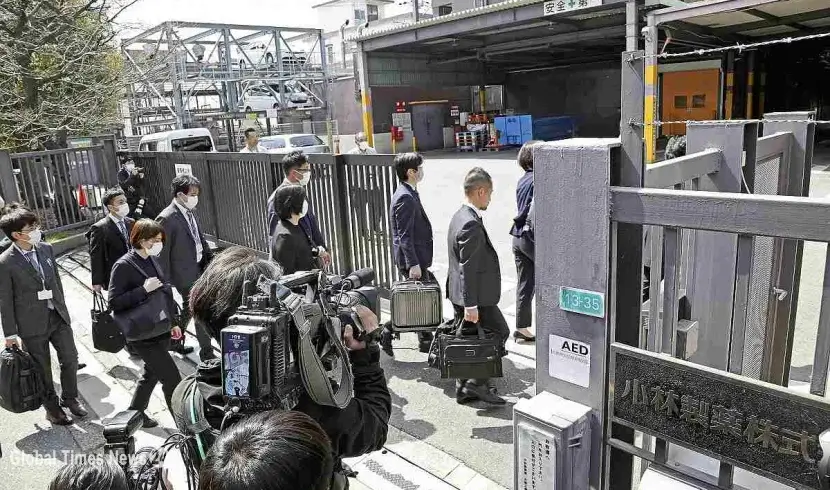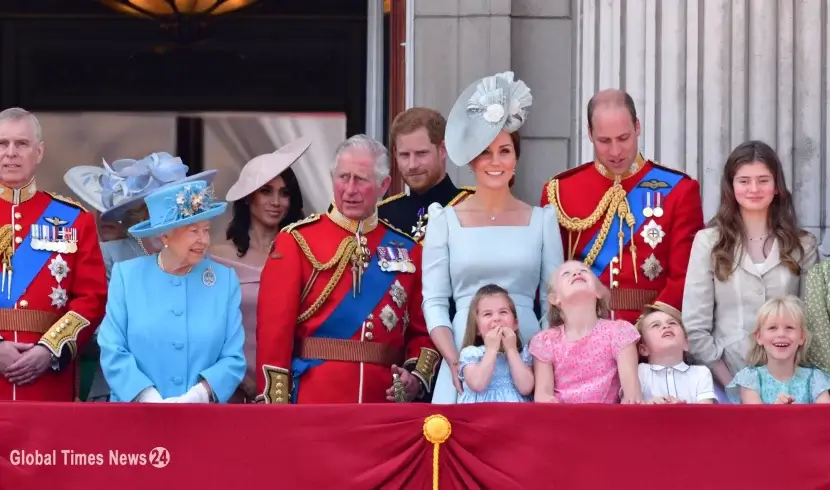Russian President Vladimir Putin in perhaps his most venomous anti-Western public comments ever declared the beginning of a new anti-colonial movement against the “doomed” governments of the U.S. and its allies, speaking at a ceremony Friday in which he formally declared dominion over parts of Ukraine.
The remarks from the embattled leader in a grand ballroom filled with stone-faced bureaucrats as well as regional and religious leaders served as the ceremonial capstone on the Kremlin-orchestrated process in recent days of forcing referendums on four oblasts in Ukraine it partially occupies, which resulted in conspicuously high levels of supposed support for joining Russia.
In an extensive speech, Putin railed against what he considered the West’s growing influence and called for “a liberation anti-colonial movement against unipolar hegemony.”
“The West is ready to step over everything to preserve the neo-colonial system that allows it to parasitize, in fact, to plunder the world at the expense of the power of the dollar and technological dictate,” Putin said, according to a translation of his remarks.
Western countries have “nothing to offer” other than “robbery and racketeering,” he said. “In fact, they spit on the natural right of billions of people, most of humanity, to freedom and justice, to determine their future on their own.”
He described as “slaves” the economic powerhouses that since World War II have allied with the U.S., specifically South Korea, Japan and Germany – the last of which Russia has targeted with particular political and economic pressure since its invasion of Ukraine. And he made paranoid allusions to those governments being “watched” with “listening devices not only in their offices but also in residential premises.”
Putin’s likening to the last time Europe witnessed warfare on a scale of his own invasion of Ukraine follows a central play by his regime in Moscow of attempting to rally Russians around a collective identity of historically vanquishing invaders like the Nazis.
He concluded his remarks, “The truth is behind us. Russia is behind us!”
Putin greeted Russian-backed delegates on stage from the four Ukrainian oblasts, clasped hands with them and led the audience in a chant of “Ross-i-ya!”
Western leaders immediately condemned Putin’s latest actions. The U.S. almost instantly imposed new sanctions on more than 1,000 top Russian officials and businesses, following through on threats President Joe Biden has made since Moscow first signaled its intent to annex more parts of Ukraine.
Russia is showing “contempt for peaceful nations everywhere,” Biden said shortly after Putin’s remarks, describing Russia’s supposed annexation of Ukraine as “phony.”
The European Union’s top diplomat, Josep Fontelles, wrote on Twitter, “The announced annexation of Ukrainian territories by Russia is a major breach of international law & violation of UN Charter. No sham referendum can justify it. Ukraine’s territorial integrity and sovereignty is non-negotiable. The EU’s support to Ukraine remains unwavering.”
Roberta Metsola, president of the European Parliament, similarly posted, “We do not recognise Russia’s sham referenda. We do not recognise Kremlin’s illegal annexation.”
Analysts consider Putin’s remarks to be a new tack in his attempts to end the fighting in Ukraine as quickly as possible as his military continues to face a string of high-profile, embarrassing losses and blunders.
“It is possible that soon after illegal annexation, the Kremlin could offer Ukraine a ‘ceasefire’ along the line of contact, to try to freeze the conflict,” writes Dara Massicot, a former Pentagon official for Russia, now with the Rand Corp. think tank. “This would be an unacceptable deal for Kyiv – Kyiv has signaled it will not accept annexation.”
The speech also served as an attempt to align Russia’s interests with China – Moscow’s occasional backer who has adopted a conspicuously distant stance since Putin’s invasion but is equally distrustful of Western intentions about its own territorial ambitions, namely annexing Taiwan.
Alexander Gabuev with the Carnegie Endowment for International Peace said at an event this week that Beijing increasingly sees Putin’s foreign policy as a “typhoon” that can’t be controlled but merely endured.
News ID : 1304


 Japanese officials inspect second Kobayashi Pharma factory amid deaths
Japanese officials inspect second Kobayashi Pharma factory amid deaths
 Ottoman Birdhouses: A Symbol of Compassion and Architectural Ingenuity
Ottoman Birdhouses: A Symbol of Compassion and Architectural Ingenuity
 Russian lawmaker: US has “looted” Ukraine as it has always done this with its colonies
Russian lawmaker: US has “looted” Ukraine as it has always done this with its colonies
 Al-Qassam Brigades Claim Responsibility for Striking Israeli Forces in Northern Gaza
Al-Qassam Brigades Claim Responsibility for Striking Israeli Forces in Northern Gaza
 Are Israel and United States using humanitarian aid as genocidal tool? Let's find out
Are Israel and United States using humanitarian aid as genocidal tool? Let's find out
 Kiss of Ashgabat
Kiss of Ashgabat
 Despite Biden's vows, Yemen starves
Despite Biden's vows, Yemen starves
 How the FAA went to war against 5G
How the FAA went to war against 5G
 Putin’s public approval soaring during the Russia-Ukraine crisis: Poll
Putin’s public approval soaring during the Russia-Ukraine crisis: Poll
 The British royal family and its racist past
The British royal family and its racist past
